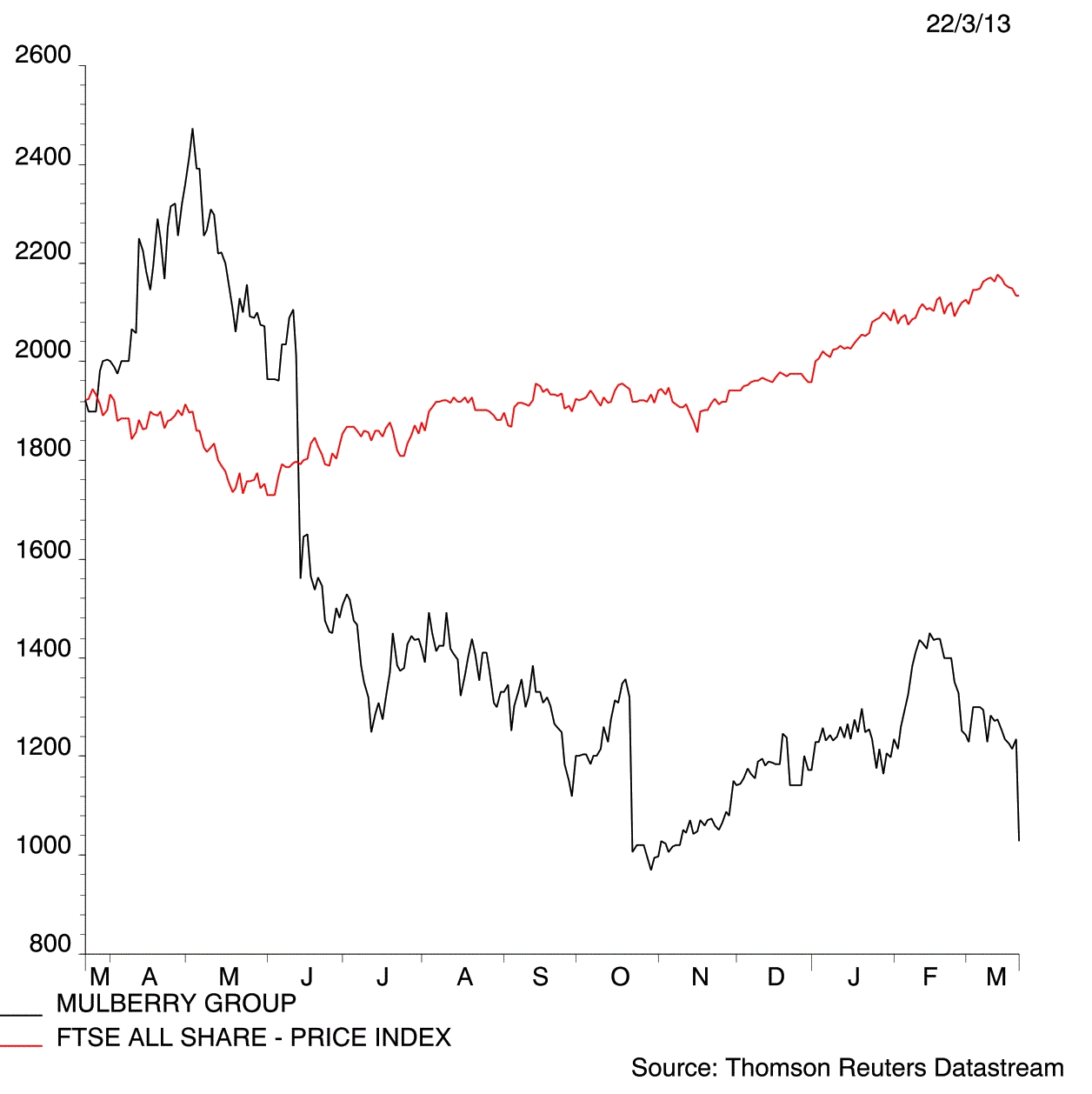
Shares in English luxury brand Mulberry (MUL: AIM) were severely out of fashion today, falling 17% to £10.25 after its second profits warning in six months. Another round of analyst downgrades is on the way following this latest hiccup, caused by a combination of lower wholesale orders and reduced spending from tourists in London stores.
Bath-based Mulberry, famed for its luxury leather bags and high-end accessories, warned that following weaker than predicted trading since Christmas, sales and taxable profits for the year to March will fall short of previously-downgraded forecasts.
This is the second slip-up in six months from the £736.5 million cap luxury firm, whose shares slumped on an earnings alert last year (23 Oct). This disappointment followed similar bad news from larger luxury peer Burberry (BRBY) which spooked investors on 11 September 2012 with a minor profits alert that suggests the boom in luxury goods might be starting to cool. Burberry dipped 4% to £13.32 on the back of Mulberry's latest warning.
As the chart shows, Mulberry has lost all the lost ground it managed to claw back with its share price following the first profit warning.
In today's market missive, Mulberry explains that retail sales over the key Christmas selling season were 'generally in line with expectations.' However, retail sales over the past 10 weeks have disappointed, with cautious tourists paring spending levels in its London stores. For the year, Mulberry now expects only modest retail like-for-like sales growth 'in the region of 6%.'
Mulberry also flagged a 15% fall in wholesale revenues for the year, caused by lower orders of late as well as its deliberate strategic decision to trim the number of international accounts in order to improve the quality of its distribution network. Nevertheless, the company said its Autumn/Winter order book for this year is at least 'building satisfactorily.'
On the defensive, chief executive officer (CEO) Bruno Guillon said that 'after three years of rapid growth, Mulberry has experienced a year of consolidation whilst we build the foundations for future growth.' Furthermore, he insisted that 'we are focused upon optimising the distribution network and adapting our tactical marketing strategy to drive international brand awareness.'
Alongside other expansionist luxury goods firms, Mulberry has been riding the boom of growing demand from consumers in developing markets. Among them is Asia, where emerging middle classes aspire to quintessential English luxury and have hitherto been prepared to pay for the privilege of owning fashion status symbols.
Today's alert signals that slowing global growth is having an impact on the resilience the luxury sector has thus far demonstrated in the face of prolonged international recession. Mulberry would argue this is a pause for breath as it positions itself for long-term growth in key Asian and North American markets.





